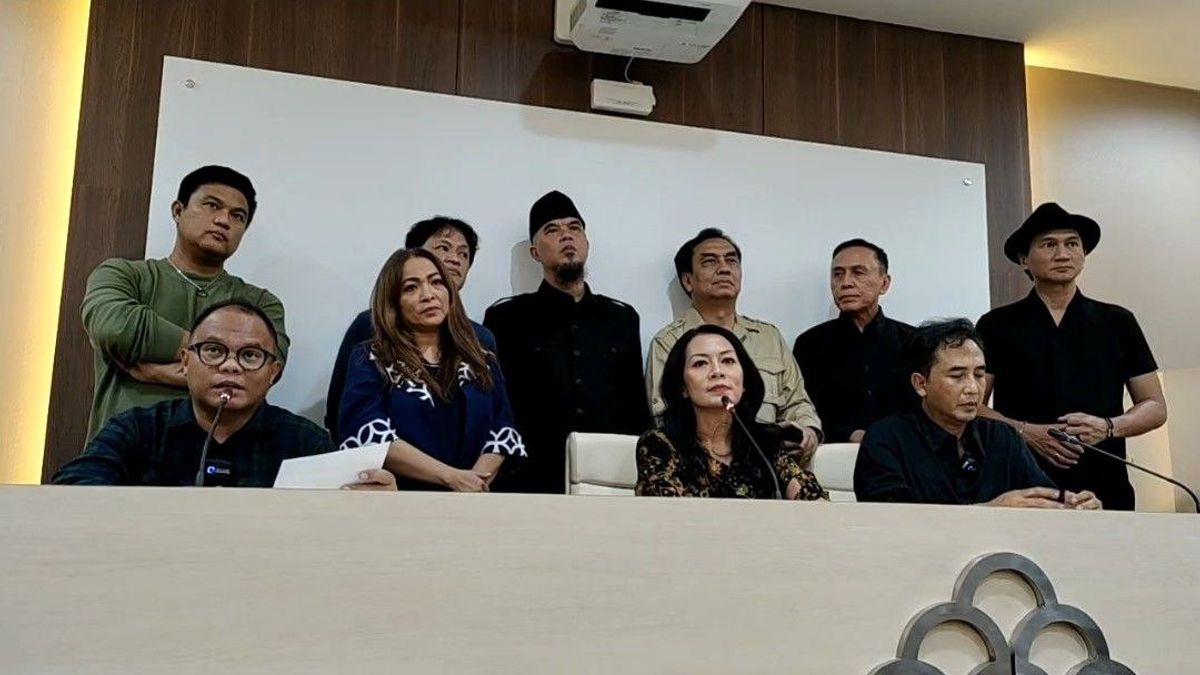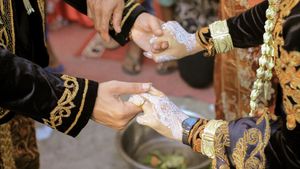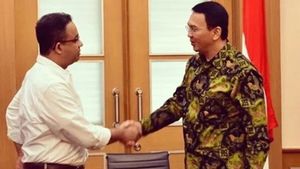JAKARTA - Several songwriters who call themselves United Composters visited the office of the Ministry of Law and Human Rights (Kemenkumham). Their arrival was to discuss issues about music royalties in Indonesia.
The musicians who are members of the United Composters include Ahmad Dhani, Piyu, Rieka Roeslan, Badai, Denny Chasmala, Dee Lestari, Ade Govinda, Posan Tobing, Pika Iskandar, Sandy Canester and Anji.
The composers also revealed four points regarding the music royalties that became an agreement between them. The four points highlight the problem between songwriters, singers and musicians, as well as event organizers.
Meanwhile, all legal articles that are declared next are articles in Law No. 28 of 2014 concerning Copyright.
Berikut empat poin yang disepakati Komposter Bersatu.
The first thing put forward is related to the issue of prohibiting a singer from performing songs created by others. One example occurred when Ahmad Dhani forbade Once Mekel from singing his songs in Dewa 19.
"First, can songwriters not give permission to other parties to use their songs? We can conclude. Songwriters can not give permission from other parties to use their songs," Badai told the media crew in Kuningan, South Jakarta on Tuesday, April 18.
United composers think a songwriter can prohibit singers from performing their songs at a music show. This is based on applicable rules.
"Regarding moral rights, as written in Item E paragraph 1 Article 5, the creator can defend his rights if there is distortion, mutilation of creation, modification of his creation, or things that are detrimental to his self-respect or reputation. Meanwhile, economic rights as stated in paragraph 2 and 3 Article 3 are that everyone who carries out economic rights for a work must obtain permission from a creator or copyright holder," said Badai.
Second point. United composers also answer the issue of a singer being able to perform songs without asking permission from the creator, but on condition that they pay royalties to the National Collective Management Institute (LMKN). United composers insist it is good if the singers ask the creator for permission first.
"We are of the opinion that songwriters have the right not to grant permission to use songs to related singers or groups. As a consequence, songwriters do not get economic rights as referred to in Article 9," Piyu continued Badai's statement.
Third point. United commissioners answered the issue of concerns some parties think a singer will find it difficult to ask the creator for permission before performing a song. In this case, United Commissioners freed several parties not to need to ask for permission, such as cafe singers, buskers, and so on.
"Basically, songwriters who work then register with LMKN aim to get maximum economic rights for their work. Songwriters cannot limit the general audience such as cafe musicians, buskers, and so on from bringing their creations," said Piyu.
Fourth Point. In his final statement, United Commissioner highlighted the issue of the amount of royalties to creators, who are currently at 2 percent of ticket sales prices or production costs related to music. They think the figure is not good enough.
"It has become common knowledge that between composers and LMK getting royalties from performing rights is not large," said Piyu.
They also highlighted several music event organizers who did not pay royalties to LMKN. United composers asked the government to improve legal procedures regarding the withdrawal and distribution of royalties.
"For this reason, we ask the government or LMKN to make Juklak and Juknis from the implementation of paragraph 23 of the Copyright Law, so that the royalty payment mechanism or performing rights is implemented more efficiently and evenly," said Piyu.
"We also urge the management of singers, performers to remind the event inviteers to pay the rights of the songwriters they present," he concluded.
The English, Chinese, Japanese, Arabic, and French versions are automatically generated by the AI. So there may still be inaccuracies in translating, please always see Indonesian as our main language. (system supported by DigitalSiber.id)













